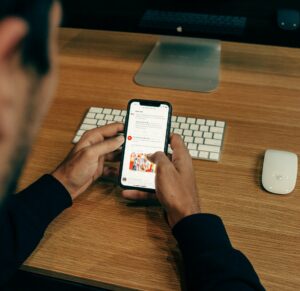If you want to be successful in today’s digital environment, here are five strategies to help you keep your concentration.

If you want to be successful in today’s digital environment, here are five strategies to help you keep your concentration.
Achieving your objectives and achieving success may be accomplished in the shortest amount of time by maintaining your integrity. What you need to do in order to get to the point where you are clear about what is most important to you, both at business and in your personal life, is to pay attention with concentrated concentration. Focus enables you to prioritize, provides you with the ability to make the appropriate judgments on what activities to spend your time on (and what activities to avoid spending your time on), assists you in reducing activities that are, in reality, time wasters, and enables you to get things done that are really important. Maintaining your concentration may be of enormous benefit to your life and to your well-being, as well as to the well-being of others around you.
What are some of the ways that you are able to do this in our day when there are continual digital distractions coming from a multitude of communication channels at the same time?
At this point, we are aware that multitasking, which refers to the act of doing many tasks simultaneously, is not a viable alternative. By making an effort to achieve this, we not only waste a lot of energy (we really move between activities), but we also restrict our ability to do any work to a satisfactory level. It is likely that we may experience tension, and we may even begin to feel overwhelmed, since we are unable to give sufficient attention to the things that are most essential. After all is said and done, we won’t have enough energy left to focus on the things that are truly important to us.
#1 Sharpen your purpose.
To the extent that we are well-prepared and have a clear understanding of what is important to us, and when we have made a firm decision on where we will direct our attention, it is more difficult for us to get ensnared in a moment of distraction.
#2 Follow the A-B-C rule
Be conscious of the fact that you always have a choice; you always have an alternative. There are two options: either you give in to the distraction or you continue to focus on what is most important to you. Once you are aware of this, take a few deep breaths. Take a step back and get some perspective. Third, decide one of the available options to pursue. The impulsive reactions you have will be slowed down, and you will have more time to ignore the distraction and continue working on the things that are more essential.
#3 Utilize the tools and technologies that are available online.
When we face the challenge of competing with all of the alarms and vibrations that are coming from our electronic gadgets, our attention span is relatively short. These alerts and messages convey to our brain the notion that there is something else that requires our attention that is of the utmost importance. The dopamine that is released by your brain has the potential to lead to addiction to these signals. Additionally, in the interim, the majority of these alerts are not even close to being considered critical or even urgent.
#4 Engage in mindfully practicing
By meditating for only a few minutes each day or by creating other routines, like as getting enough sleep, exercising, spending more time in nature, or thinking about three things for which you are thankful just before you go to sleep, it is possible to make a discernible improvement in one’s capacity to concentrate and focus. You may better arrange your emotions by participating in these activities.
#5 Strive to control your emotions
Experts in the field of psychology suggest that the best balance of happy and negative emotions for concentration is three to one. Is that the case? According to their findings, your brain interprets unpleasant emotions as threats, which in turn hinders your capacity to do other cognitive activities simultaneously.




